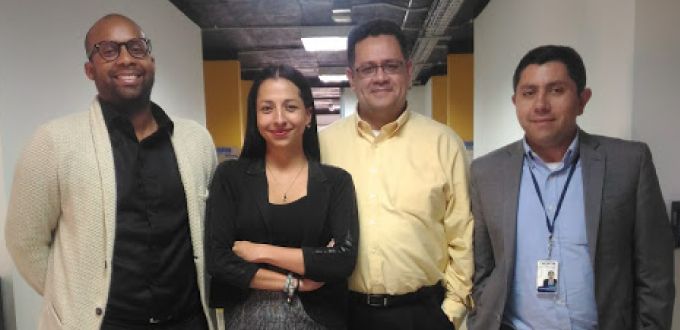RENATA Expands its Resource Certification Project after Receiving FRIDA Grant
30/05/2018

RENATA (Colombia’s National Advanced Technology Academic Network), the winner of a FRIDA grant, is planning to replicate its resource certification (RPKI) initiative throughout Latin American academic networks with the support of Red CLARA (the Latin American Cooperation of Advanced Networks).
The idea of promoting the signing of every numbering resource of each of the region’s academic networks was devised after interacting with contacts RENATA project leaders met after their experience with the FRIDA Program.
Erika Vega Valenzuela, Infrastructure Coordinator at RENATA, highlighted that BGP Security in RENATA’s Infrastructure is the largest RPKI deployment initiative in Latin America and the Caribbean to date.
What is the BGP Security in RENATA’s Infrastructure project?
The project involves implementing origin validation of BGP prefixes in RENATA’s network backbone, which provides interconnection services to SNCTI in Colombia and the rest of the world. Specifically, the project will focus on the major exchange points in Bogotá which provide connectivity to Red Clara and in Barranquilla, which provide Internet connectivity.
Why do you think it is important to implement Resource Public Key Infrastructure (RPKI) technology?
Internet route hijacking is an open issue that has been affecting operational and research networks for a long time. The solution to at least validate BGP route origin is to implement RPKI in the infrastructure. Considering that academic networks use BGP and that a BGP session is established with each of the institutions connected to RENATA’s network, we observed the need to implement this good practice.
How has resource certification progressed in Colombia’s National Advanced Technology Academic Network once the project was implemented?
National resource signing levels are quite high considering that we started with zero signed resources and reached more than 1,150 signed numbering resources in both IPv4 and IPv6. We are currently looking into expanding the project to all the Latin American academic networks with the support of Red CLARA (the Latin American Cooperation of Advanced Networks), to promote the signing of all the resources of each of these networks.
How did the technical coordinators of Colombian regional academic networks, IT directors and network managers of the institutions connected to RENATA react?
Thanks to our assertive training and awareness-building activities among the technical community, the response of every actor at national level was extremely satisfactory and we trained 328 professionals on the importance of implementing this solution.
What advantages does this initiative offer in terms of securing critical Internet infrastructure?
This is the first project worldwide to consider implementing origin validation at the level of a national network (not at a single point, as in the case of deployment at Internet exchange points). Its scope is broader in all respects: geographically, in terms of the routers and other systems it uses, the number of routes, the number of institutions, the amount of cryptographic material that must be generated, etc.
This scale entails operational and logistic complexities without precedent in this kind of projects. RENATA becomes a global pioneer in routing system security.
Tell us about your participation in FRIDA and what you were able to achieve after winning the award in 2016.
Our participation in the FRIDA program was completely satisfactory, as we received constant support from all their collaborators. It also gave us the chance to participate in very important spaces such as the 2016 Internet Governance Forum and the IETF 100 meeting to present the results of our project. Thanks to the experience we gained, I have continued to submit new initiatives in response to each call for projects.
How has the project evolved since then?
We’ve been approached by some national academic networks seeking guidance for the implementation of this technology. Also, the steps we’ve taken with Red CLARA in order to implement the project throughout Latin America.
Learn more about Renata here
(Free access, no subscription required)